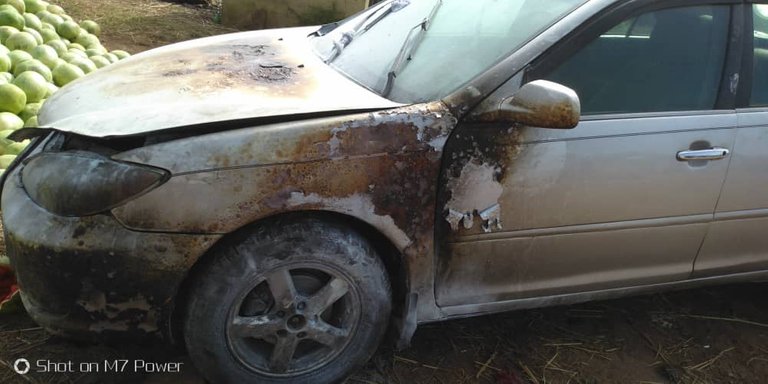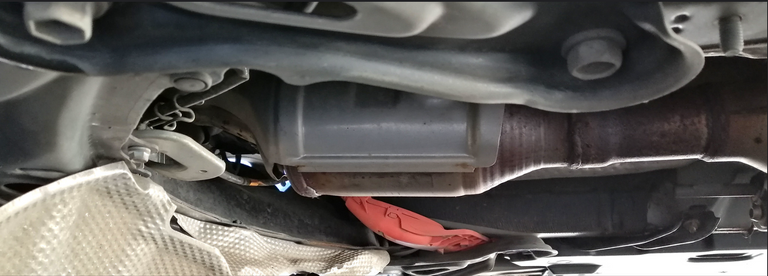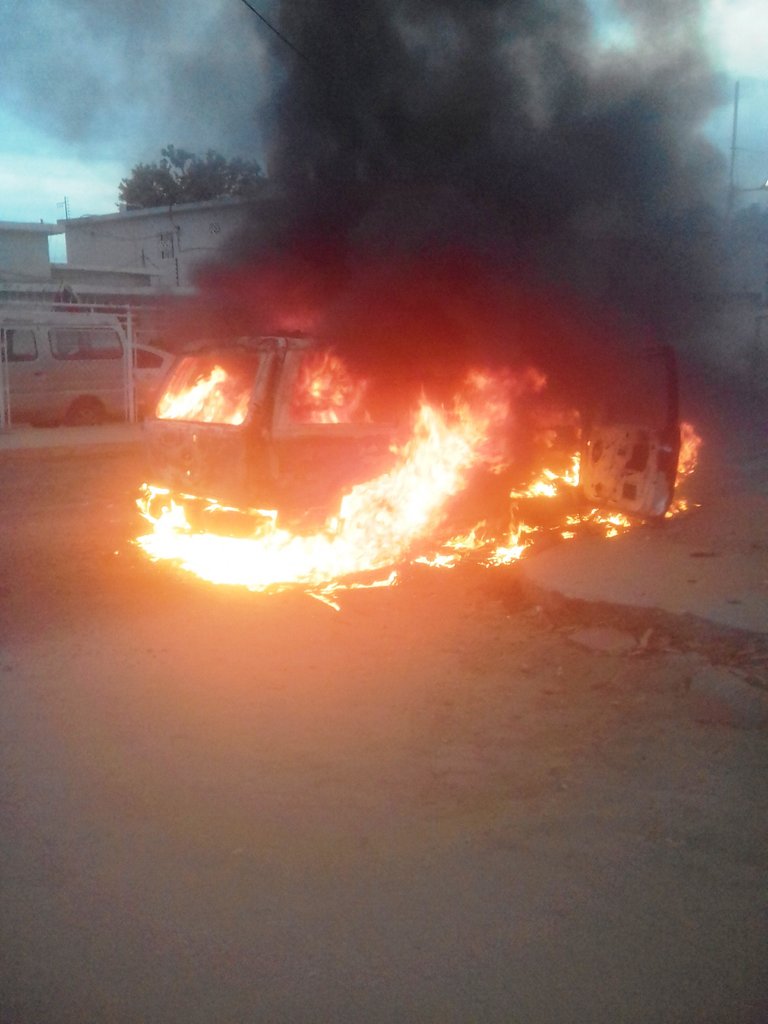I received a rather ugly piece of news a few weeks ago. It was about an acquaintance who is fast becoming a friend. His car suddenly caught fire while in motion and all efforts to put the inferno to rest proved abortive. Thank goodness, passersby were able to rescue his wife and kids. He sent me an image of what remains of his vehicle. It is as seen below:

So many questions ran through my mind. The closest encounter I had with vehicle inferno was in 2014. I ran into a little accident and my car required a bit of beating up by a technician (we call them panel beaters around here). The car seats had to be brought down in order to get the work done.
The incident happened when I was about to take the car away from the workshop. A thick smoke just ensued from the back seat. Fortunately, I noticed on time, stopped the engine, raised the seat up, and put off the fire that was about to start.
The source of the smoke was an electric wire. The back seat was mistakenly placed on it and I think the pressure led to the smoking issue. This particular incident and other third-party experiences have made me form an opinion about vehicle infernos - they're often due to electrical issues.
I asked the acquaintance what he thinks could be the cause of the fire, and he responded in the negative. I asked if any mechanical, electrical, or bodywork was done on the vehicle prior to the incident, but the response remained negative.
So what could cause a fully functioning vehicle to catch fire all of a sudden? I decided to do a little digging. Below are some of the things I dug up.
Electrical faults
Just like I said earlier, electrical faults are somewhere at the top of the cause of fire in vehicles. Electrical wires run throughout the length and breadth of modern-day vehicles - especially if they are automatic cars, electric cars, or hybrid cars.
Manual cars also have wiring systems and a fault at a particular point can cause a spark which can lead to a fire. According to FEMA’s Highway Vehicle Fires (2014-2016) report, about 29% of vehicle fires are due to issues that have to do with electrical insulation.
Thus, it is very imperative that all electrical wires in your vehicles are properly insulated. Considering the attitude of many car electricians in Nigeria, I am certain that a large percentage of vehicle fires will be due to issues with electrical wiring. Unfortunately, there are no available statistics to back it up. We are poor at keeping records around here.
Overheating
When the cooling system of a car's engine develops faults or if the coolant runs down, the car ends up overheating. Overheating causes the fluids in vehicles to heat up and this can cause some of them to ignite.
The temperature of a car's engine is usually indicated on the dashboard. The needle is usually around the middle for optimum temperature. Below or above the optimum temperature is not good for the engine.
Temperature below the optimum level will wear down the engine quicker. This is one of the major reasons a thermostat is usually installed between the engine and the cooling system of most vehicles.
Above the optimum temperature, fluids start heating up and if not discovered on time, the car may light up in flames.
Leaking fluids
This would also be somewhere at the top of the major causes of vehicle fires in Nigeria. Premium Motor Spirit (PMS), also known as petrol or gasoline, is a highly flammable fluid. Unfortunately, a large percentage of the cars on Nigerian roads are gasoline-powered engines.
Leakages can occur when cars suffer from improper maintenance or due to the mistakes of technicians. Because of the highly inflammable property, gasoline can ignite given a little spark or at a relatively high temperature. Leaking fuel tanks, improperly tightened hoses, etc are some of the causes of fuel leakage in vehicles.
Faulty catalytic converter
Catalytic converters in vehicles mainly function to break down harmful pollutants that get to the vehicle's exhaust system from the engine before they are released into the environment.

The component of the exhaust system works within a specific temperature range. However, clogging of the system or bad spark plugs can cause the temperature to be significantly raised.
Catalytic converters under high temperatures cannot themselves catch fire. However, flammable components around the exhaust system can be ignited by the high temperature. In actual fact, many newly manufactured vehicles have been recalled due to faulty catalytic converters.
Final words
Vehicle infernos may be caused by other reasons stated above. While one cannot be too careful, it is imperative to ensure that your cars are regularly checked by qualified technicians for any fault. This will reduce the likelihood of fire.
It is certain that one of the reasons stated above would be the cause of the fire that engulfed my acquaintance's vehicle. Unfortunately for him, there was no fire extinguisher around for quick intervention.
Apart from observing the necessary precautions, every vehicle owner should ensure that they have valid portable extinguishers in their trunks in case of emergencies. They usually do not come in handy often, but when they finally do, they save a lot of costs, or even lives.


